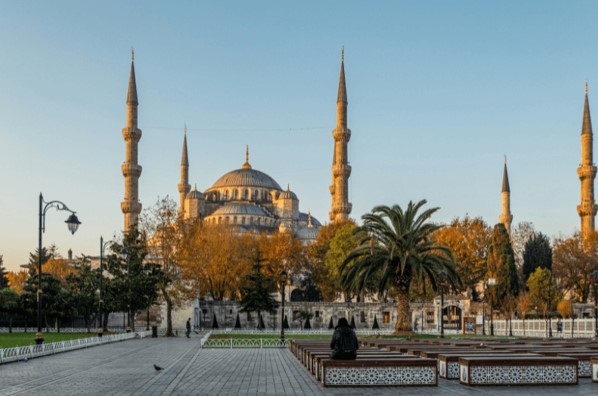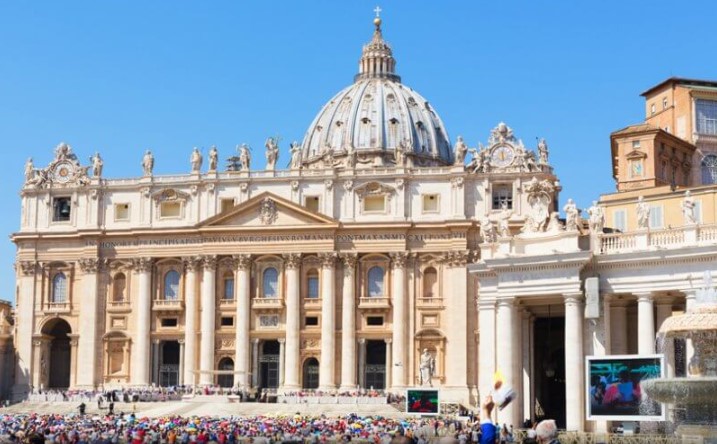If you have a social media account and live in Australia, the chances are you spent this winter in one of three ways: on the slopes; on holidays somewhere in the northern hemisphere; or on your phone, inundated with envy-inducing images from those enjoying the former options.
Once upon a time, being a member of group three would have been torturous to me: friends sunbathing in Greece, influencers posting reels from the ski lifts, colleagues roaming around the south of France. But after two years of being unable to travel, my post-pandemic burnout meant that even contemplating a big holiday (read: parenting my children in a more exotic location) filled me with dread.
Instead, I holidayed from home, which basically meant sending my kids to school, taking time off work and doing absolutely whatever I felt like. I took baths, I went on walks, I experimented in the kitchen and I read. I made a reservation at a hotel fancier than one I’d normally be able to afford on vacation where I took more baths, hung out in a sauna and swanned about in a robe. I booked myself in for a facial and gave up alcohol, determined to savour my slow evenings instead of dulling them with wine. And I temporarily deleted Instagram so I could enjoy my hard-won time instead of whittling it away on other people’s lives.
Most of the time, my holiday-at-home meant doing absolutely nothing, which, as it turns out, was an importantly rejuvenating something.
In her book, How to Do Nothing, Jenny Odell says without the time or space to do nothing “we have no way to think, reflect, heal, and sustain ourselves –individually or collectively”.
In doing nothing, she says, we are simultaneously “deprogramming” from modern life – with its intensity and hustle culture – while engaging in a kind of “sustenance”. A necessary break for those of us “feeling too disassembled to act meaningfully”.
That sense of chaos and disassembly is what motivated Karima Hazim, who co-runs the Sunday Kitchen cooking school with her mother Sivine Tabbouch, to holiday at home this year. Though the mother of two had an “overwhelming urge to travel” when borders opened, she felt like she was still playing catch-up on cancelled bookings, and knew that travelling with children wouldn’t offer the “comfort and ease” she was desperate for.
Instead, she enjoyed her favoured holiday pastimes in the comfort of her own back yard. It turned out to be a better (and far cheaper) option. She took leisurely walks along Sydney’s Bay Run listening to podcasts she’d been saving up for a good year; she had long lunches and incredible dinners – with dessert, she adds, because she didn’t have to think about getting up for work; she went to the theatre and to the movies – “I watched three movies in the cinemas in the last two weeks, as opposed to averaging one a year.” She took trips to antique markets and vintage stores, and booked two facials to mark the beginning and the end of her holiday at home.
“The first week was a total mess, I couldn’t relax and find my feet ‘on holidays’ because I was technically at home and had the temptations of routine and work all around me,” she says. “I felt insanely guilty [too], thinking of how ridiculous the idea was.”
But by the end of the break, she found her groove. “The time off has really given me space to think and consider my time more carefully. I plan to continue this moving forward, and have blocked out a period in six months’ time to holiday at home again.”
Hazim is not the only one who has found the appeal in going nowhere, but while she (and I) used ours to disconnect from our routines, YA author Jeremy Lachlan uses his time at home to step out of the fantastical worlds he has created and reconnect with reality.
Of a staycation, Lachlan says: “There’s nothing to plan beyond ‘What am I going to eat today?’ and ‘What relaxing thing am I gonna do?’ No rushing to airports. No long-haul flights. No checking in and out of hotels or living out of a suitcase. Don’t get me wrong, I can’t wait to have another overseas adventure, but when it comes to unwinding after a stressful work period, I need a quiet week [to] get used to being in the real world again.”
He uses the period to cook and clean, watch movies and read books, hang out with friends and indulge in visits to bookstores and local cafes where the only thing he has to think about is his breakfast and his crossword puzzle.
“There’s something so restorative about reacquainting yourself with the wonders of your everyday surroundings,” he says. “Reminding yourself that the rest of the world’s been trucking along while you’ve been chained to your desk.”
And that’s the best part, I think: rather than returning from a gorgeous place with jet lag and post-holiday blues, the holiday at home is a simple exercise in celebrating your everyday. It teaches you to make adventures in leisure a more constant feature of your working week. You might not see the world but, as Lachlan puts it, you could well be reminded that “your little corner of it is a beautiful place”.




More Stories
Southwest apologizes for holiday chaos in Senate hearing
US Transportation Dept. investigating Southwest holiday travel meltdown
Southwest Airlines faces investigation, $220M loss over holiday travel disaster : NPR